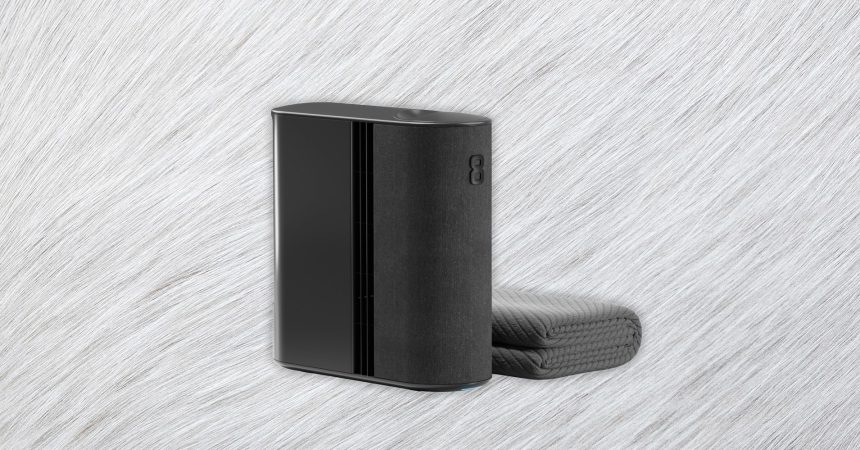Sleep Trackers: A Comparative Overview
The pursuit of better sleep has fueled the development of a plethora of sleep-tracking devices and applications. Ranging from simple smartphone apps to sophisticated wrist-worn sensors and even radar-based systems, these tools promise to unlock the secrets of our nightly slumber. However, accuracy, comfort, and cost vary significantly between them. This detailed analysis explores several sleep trackers, highlighting their strengths and weaknesses.
The Google Nest Hub (2nd Gen) offers a convenient, contactless approach to sleep tracking using radar technology. Integrated into a smart home hub, it also monitors snoring and sleep talking. While alluring for its multi-functionality, its sleep tracking accuracy falters, particularly in distinguishing REM sleep and periods of wakefulness. Compared to other trackers, the Nest Hub’s data often deviates considerably, suggesting limitations in its sleep stage analysis.
For those seeking a software-based solution, the Sleep Routine app presents a more affordable alternative. Leveraging the sensors in your smartphone, it provides a detailed breakdown of sleep stages and offers personalized insights. Its smart alarm feature promotes gentle awakening. However, the app suffers from occasional technical glitches, leading to incomplete or missing sleep reports, which detracts from its overall reliability.
The Withings ScanWatch 2 distinguishes itself with a comprehensive suite of health-monitoring capabilities. Beyond sleep tracking, it measures respiratory rate, heart rate, temperature, and blood oxygen levels. While offering valuable data and personalized advice, its bulkiness can compromise sleep comfort for some users. Additionally, its accuracy in differentiating light sleep from wakefulness sometimes falls short.
The Muse S Gen 2 headband takes a different approach, using EEG-like sensors to track brain activity alongside other physiological metrics. Primarily designed for meditation, its sleep tracking feature provides insights into heart rate, respiration, and movement. However, its comfort level poses a significant challenge, often leading to unintended removal during sleep and consequently, interrupted tracking. Its high price further limits its appeal.
The Philips Sleep Headphones with Kokoon attempt to combine sleep tracking with audio-assisted relaxation. The integrated earbuds play soothing sounds and sleep stories, aiming to improve sleep onset. However, the design can hinder comfortable sleep, and the earbuds tend to dislodge during the night, disrupting sleep tracking. The limited scope of its sleep analysis also restricts its usefulness.
Finally, the Biostrap Kairos, tailored for research and organizational use, offers a detailed analysis of sleep stages, heart rate variability, and subjective sleep quality. While seemingly accurate, its limited availability restricts its practical use for individuals seeking personal sleep insights.
Navigating the Sleep Tracking Landscape: Key Considerations
Choosing the right sleep tracker requires careful consideration of several factors. Accuracy is paramount. While most trackers offer similar metrics, their ability to accurately identify sleep stages and periods of wakefulness varies significantly. Comfort is another crucial factor, especially for devices worn during sleep. Bulky or intrusive trackers can disrupt sleep, negating their intended purpose.
Cost is another significant consideration. Smartphone apps offer a budget-friendly entry point, while dedicated devices can command substantial investments. The features offered by each tracker should be weighed against their price to determine value for money.
The complexity of the data presented also influences the choice. Some trackers offer simple sleep scores and basic stage breakdowns, while others delve into detailed physiological metrics and personalized recommendations. Users should choose a tracker that aligns with their desired level of information.
Beyond the Metrics: Practical Application of Sleep Data
The ultimate goal of sleep tracking extends beyond mere data collection. Understanding one’s sleep patterns can empower individuals to make informed lifestyle changes that promote better sleep hygiene. Identifying factors that contribute to restful sleep versus disrupted sleep can lead to personalized strategies for improvement.
Tracking sleep data over time can reveal trends and patterns that might otherwise go unnoticed. Changes in sleep duration, quality, or specific sleep stages can signal underlying health issues or lifestyle imbalances. This information can be invaluable in proactive health management and seeking timely medical advice when needed.
Integrating Sleep Tracking into a Holistic Wellness Approach
Sleep tracking should be viewed as one component of a broader wellness strategy. While data provides valuable insights, it’s essential to consider other lifestyle factors that influence sleep, such as diet, exercise, stress management, and sleep environment.
Combining sleep tracking with mindfulness practices, relaxation techniques, and consistent sleep schedules can amplify the benefits of improved sleep hygiene. By addressing both the physiological and psychological aspects of sleep, individuals can cultivate a more holistic approach to sleep wellness.
The Future of Sleep Tracking: Personalized Insights and Predictive Analysis
The field of sleep tracking continues to evolve, driven by advancements in sensor technology and data analysis. Future iterations of sleep trackers are likely to offer even more personalized insights, leveraging artificial intelligence and machine learning to tailor recommendations based on individual sleep patterns and lifestyle factors.
Predictive analytics could further enhance the value of sleep tracking, potentially identifying early signs of sleep disorders or other health issues. By analyzing sleep data in conjunction with other health metrics, these advanced tools could empower individuals to take proactive steps to mitigate potential risks and improve their overall well-being.
The Importance of Contextualizing Sleep Data
While sleep trackers offer valuable insights, it’s crucial to interpret the data within the context of individual circumstances. Factors such as age, lifestyle, and underlying health conditions can significantly influence sleep patterns. Consulting with a healthcare professional can help contextualize sleep data and provide personalized guidance for optimizing sleep health.
It’s also essential to avoid fixating solely on the numerical data provided by sleep trackers. Sleep is a complex physiological process, and individual experiences can vary even with similar sleep metrics. Prioritizing overall well-being and listening to one’s body remains paramount, using sleep tracker data as a supportive tool rather than a definitive measure of sleep quality.



